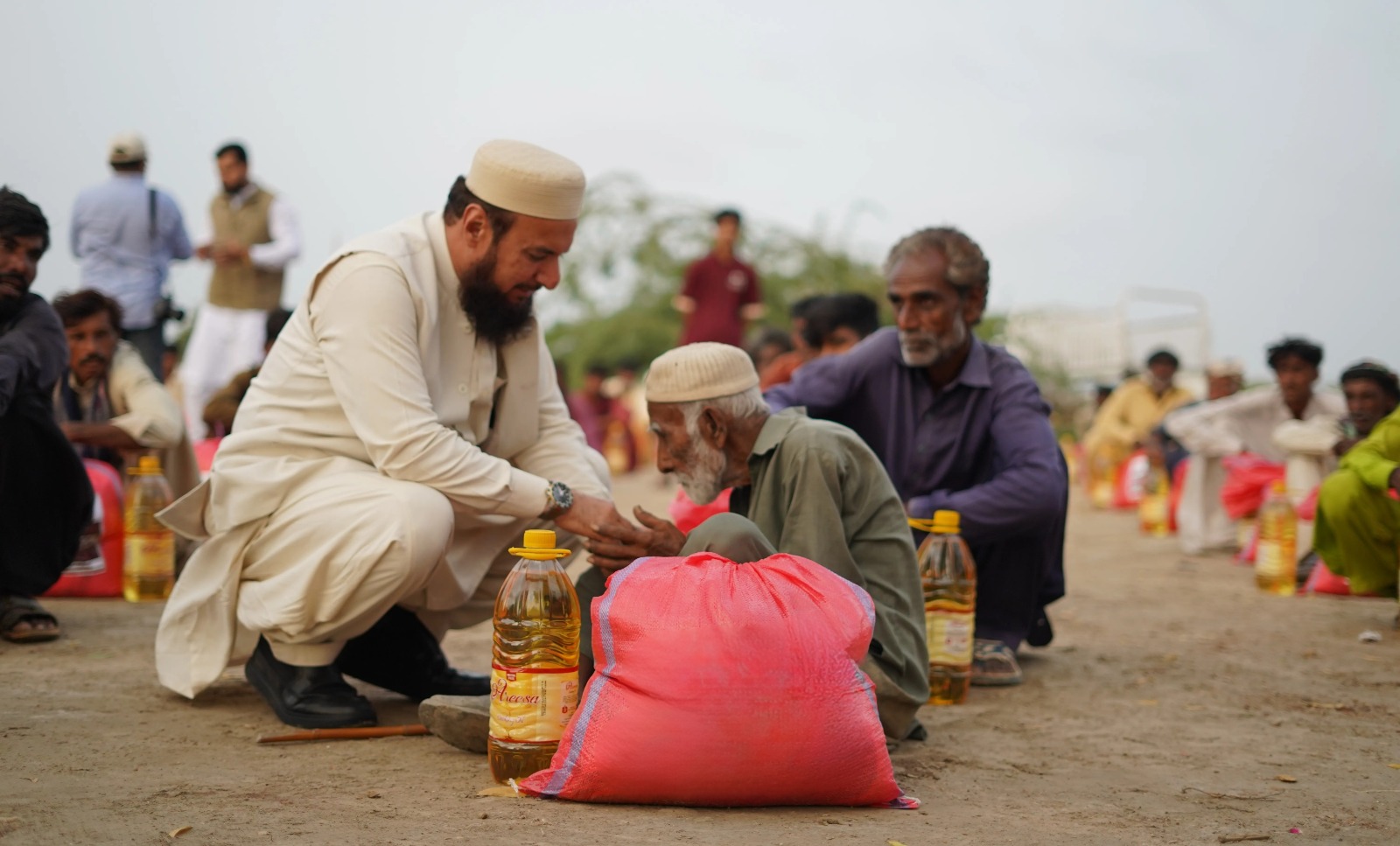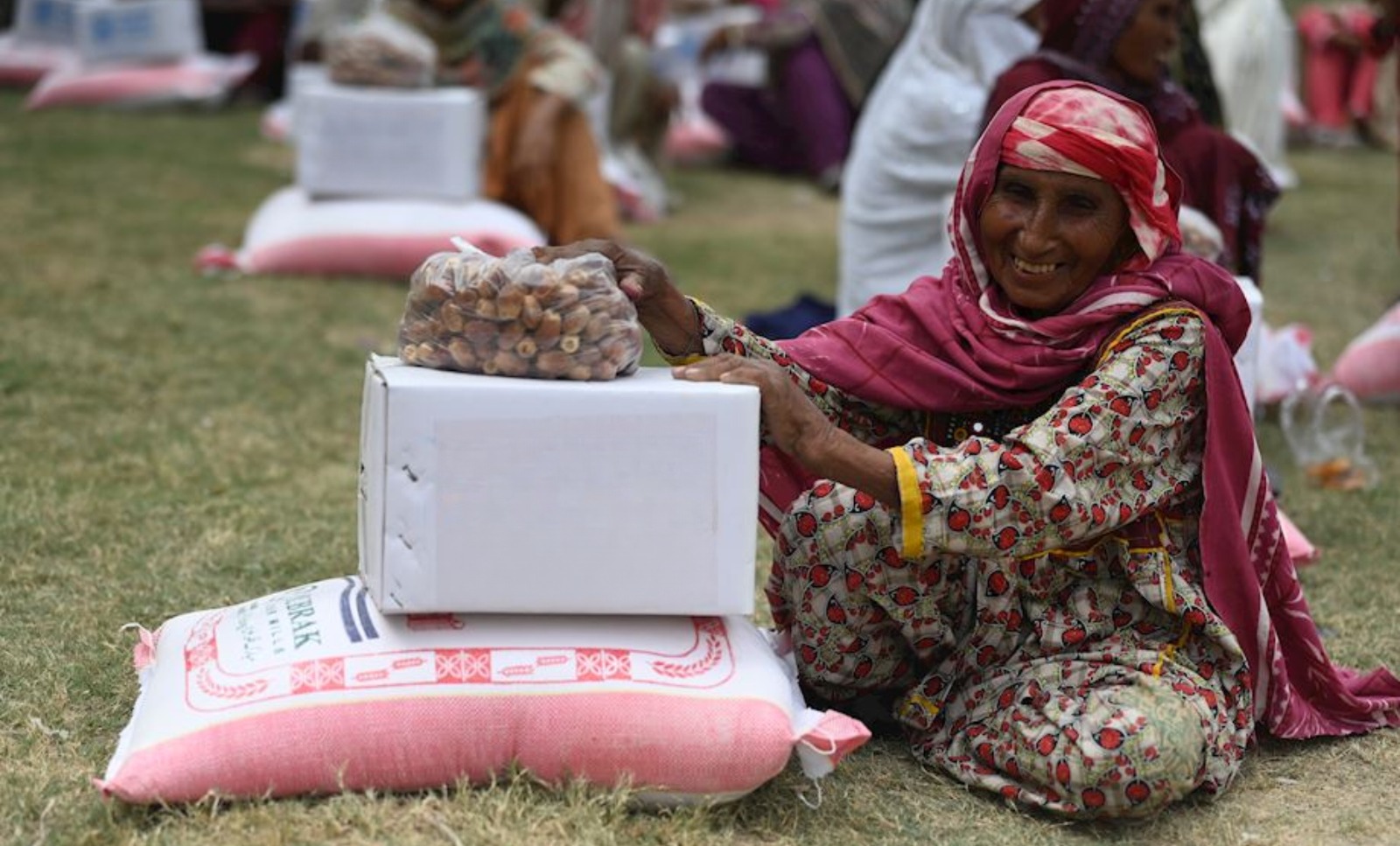Eid al-Fitr is one of the most joyous occasions in the Islamic calendar. It’s a time overflowing with gratitude to Allah (SWT) for the blessings of Ramadan, marked by communal prayers, festive meals, family gatherings, and the cheerful exchange of gifts. However, amidst the widespread celebration, it’s crucial to remember those for whom Eid might not feel so bright – especially orphans and vulnerable children facing hardship.
Islam places immense emphasis on caring for the less fortunate, and specifically highlights the profound responsibility and reward associated with looking after orphans. Connecting the beautiful tradition of giving Eid gifts to these core Islamic principles transforms it into a powerful act of worship, ensuring that the blessings and joy of Eid are shared with all members of the Ummah, particularly the most vulnerable among them.
The Exalted Status of Caring for Orphans in Islam
The Quran and Sunnah repeatedly stress the importance of treating orphans with kindness, justice, and compassion. Allah (SWT) reminds us in the Quran:
“So as for the orphan, do not oppress [him].” (Quran 93:9)
And:
“Indeed, those who unjustly consume orphans’ wealth ˹in fact˺ consume nothing but fire into their bellies. And they will be burned in a blazing Hell!” (Quran 4:10)
Conversely, the rewards for caring for orphans are immense. The Prophet Muhammad (peace be upon him), who was himself an orphan, held those who care for orphans in the highest regard:
“I and the person who looks after an orphan and provides for him, will be in Paradise like this,” putting his index and middle fingers together. (Sahih al-Bukhari 6005)
This incredible Hadith shows the proximity to the Prophet (ﷺ) granted to those who fulfil this noble duty. Islam recognises the unique vulnerability of a child who has lost one or both parents and mandates the community to step in with love, support, and protection.
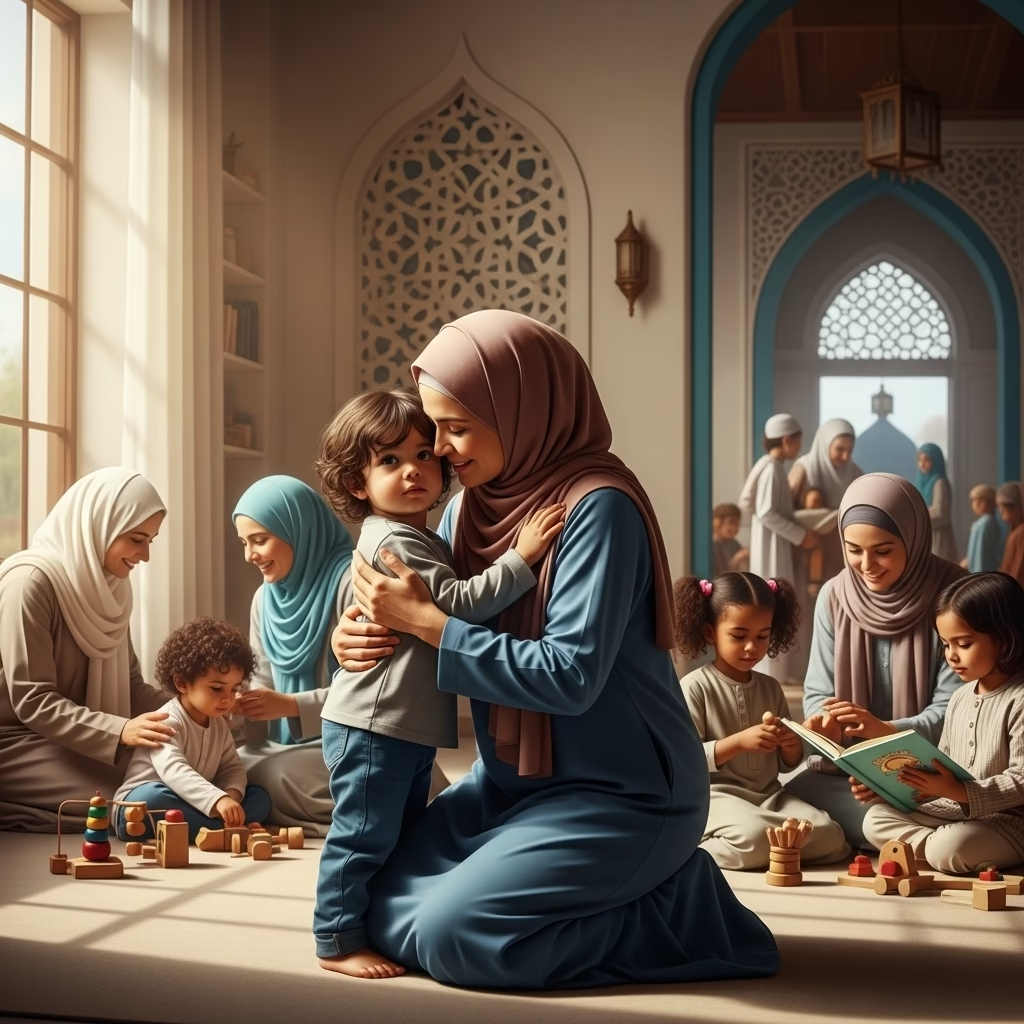
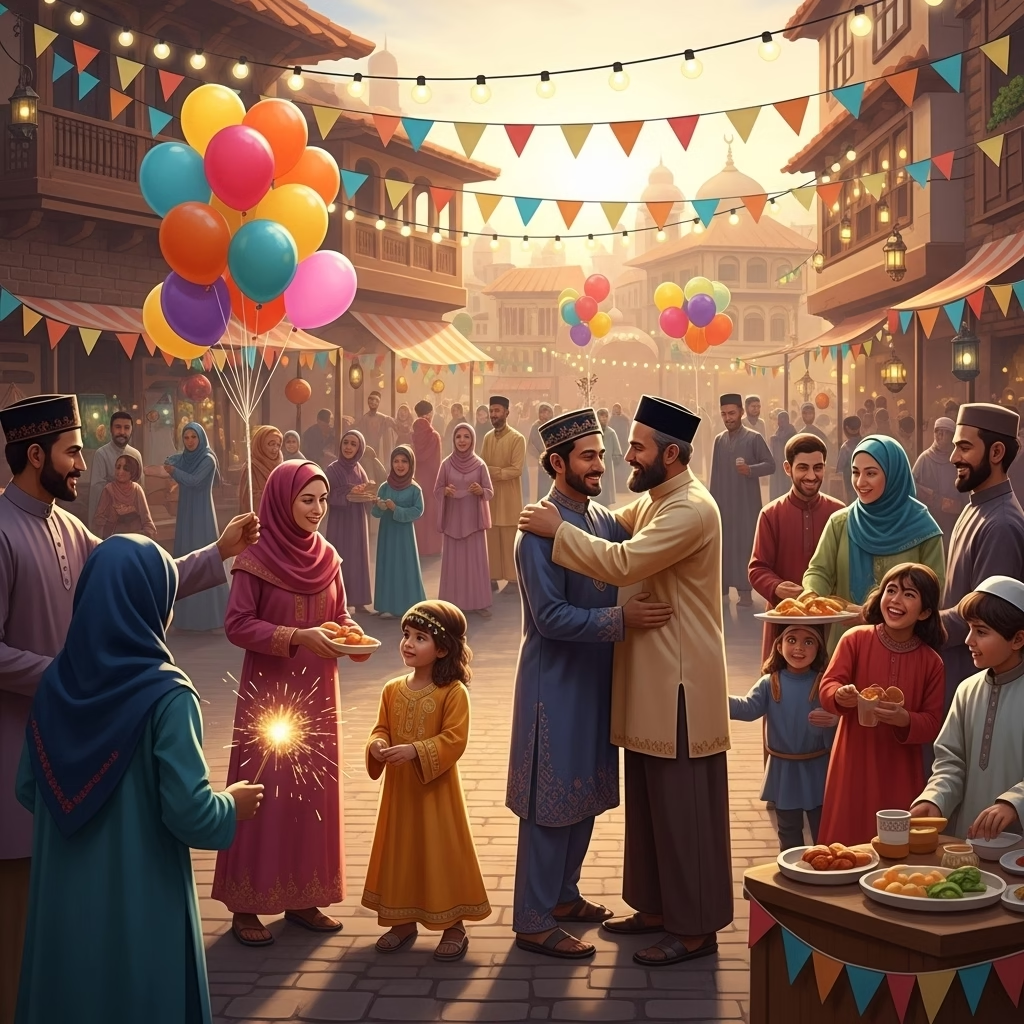
Eid: A Time of Community and Shared Joy
Eid al-Fitr is fundamentally a communal celebration. It begins with the congregational Eid prayer, strengthening bonds of brotherhood and sisterhood. Families visit each other, share special meals, and wear new clothes. It’s a time to express gratitude for Allah’s blessings and to share those blessings with others.
An essential part of this sharing is Zakat al-Fitr, the obligatory charity given before the Eid prayer, specifically to ensure that the poorest members of the community can also partake in the Eid celebration without having to worry about food. This sets the tone for the entire day: Eid is about unity, compassion, and ensuring everyone feels included.
Why Eid Can Be Painful for Vulnerable Children
For orphans and children living in poverty, displacement, or conflict zones, Eid can sadly be a stark reminder of what they lack:
- Absence of Family: Eid is heavily family-focused. Children without parents may feel a profound sense of loss and loneliness amidst the widespread family celebrations.
- Financial Hardship: The simple joys of Eid – new clothes, special treats, receiving ‘Eidi’ (gifts or money) – are often completely out of reach for families struggling to meet basic needs. Seeing other children enjoy these things can lead to feelings of sadness and exclusion.
- Isolation: In refugee camps or impoverished communities, the festive atmosphere others experience might seem distant, highlighting their difficult circumstances.
Without support, these children can feel forgotten and invisible during a time when the rest of the community is celebrating.
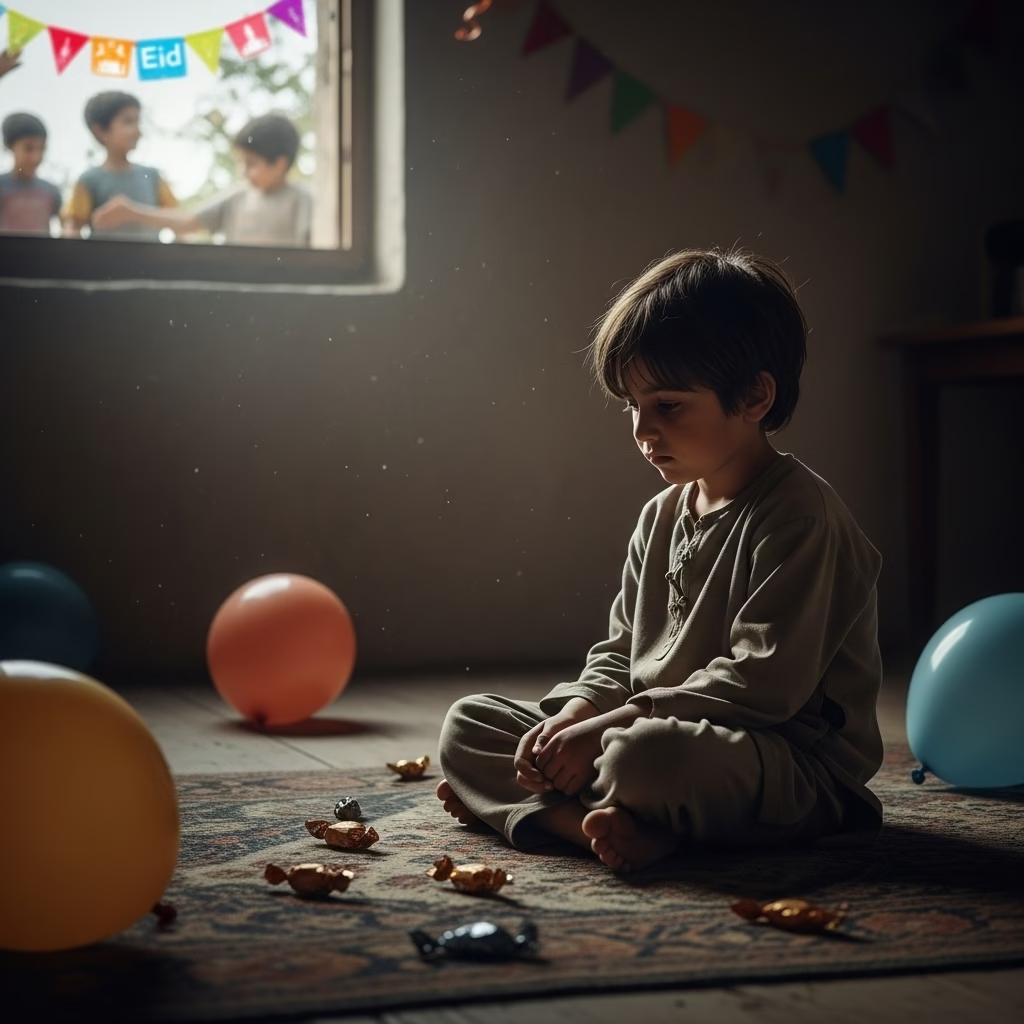
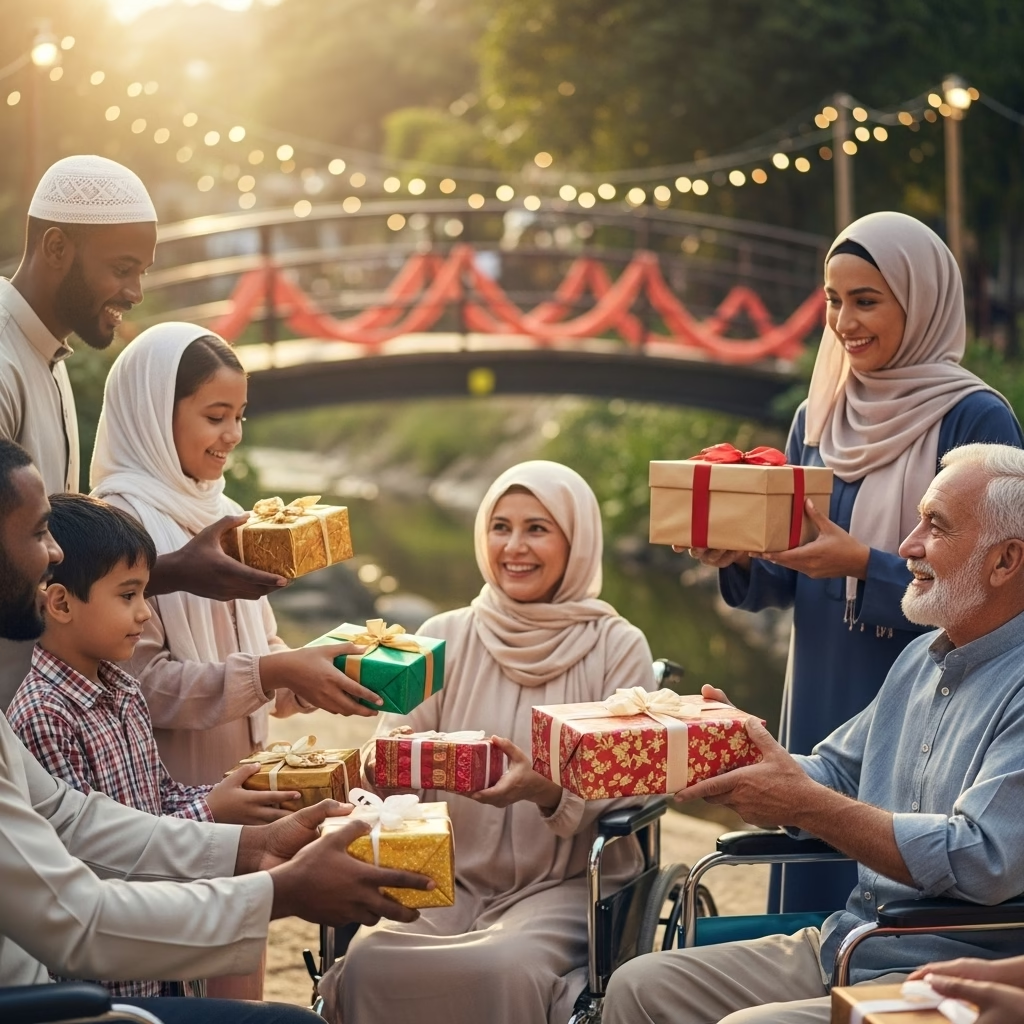
Eid Gifts: A Bridge of Compassion and Inclusion
This is where the act of giving an Eid gift specifically to an orphan or vulnerable child becomes so significant. It directly addresses their specific needs during this festive time:
- Delivering Joy: A simple gift – a toy, a new outfit, some sweets – brings immediate happiness and excitement, allowing them to experience the childlike delight that Eid should bring.
- Fostering Inclusion: Receiving a gift makes them feel seen, valued, and part of the broader community celebration. It tells them they are not forgotten.
- Providing Tangible Blessings: For many, the gift might be practical, like new clothes (which many children wear specially for Eid) or school supplies, providing essential items they otherwise wouldn’t receive.
- Restoring Dignity: It allows children and their caregivers (if applicable) to participate in the spirit of Eid with dignity, reducing the shame or sadness associated with a lack.
Through organisations like Children of Adam, these gifts are chosen thoughtfully to be age-appropriate and culturally relevant, ensuring they bring genuine happiness.
Fulfilling Our Islamic Duty
By directing our Eid generosity towards orphans and vulnerable children, we are:
- Fulfilling a Command: Obeying Allah’s command to care for the orphan.
- Seeking Proximity to the Prophet (ﷺ): Striving for the high station promised to those who sponsor orphans.
- Embodying the Spirit of Eid: Truly sharing the blessings and joy of the occasion.
- Practising Sadaqah: Performing a voluntary act of charity aimed at bringing happiness and relief for the sake of Allah (SWT).
Strengthening the Ummah: Building a more compassionate and supportive community where the needs of the vulnerable are met.
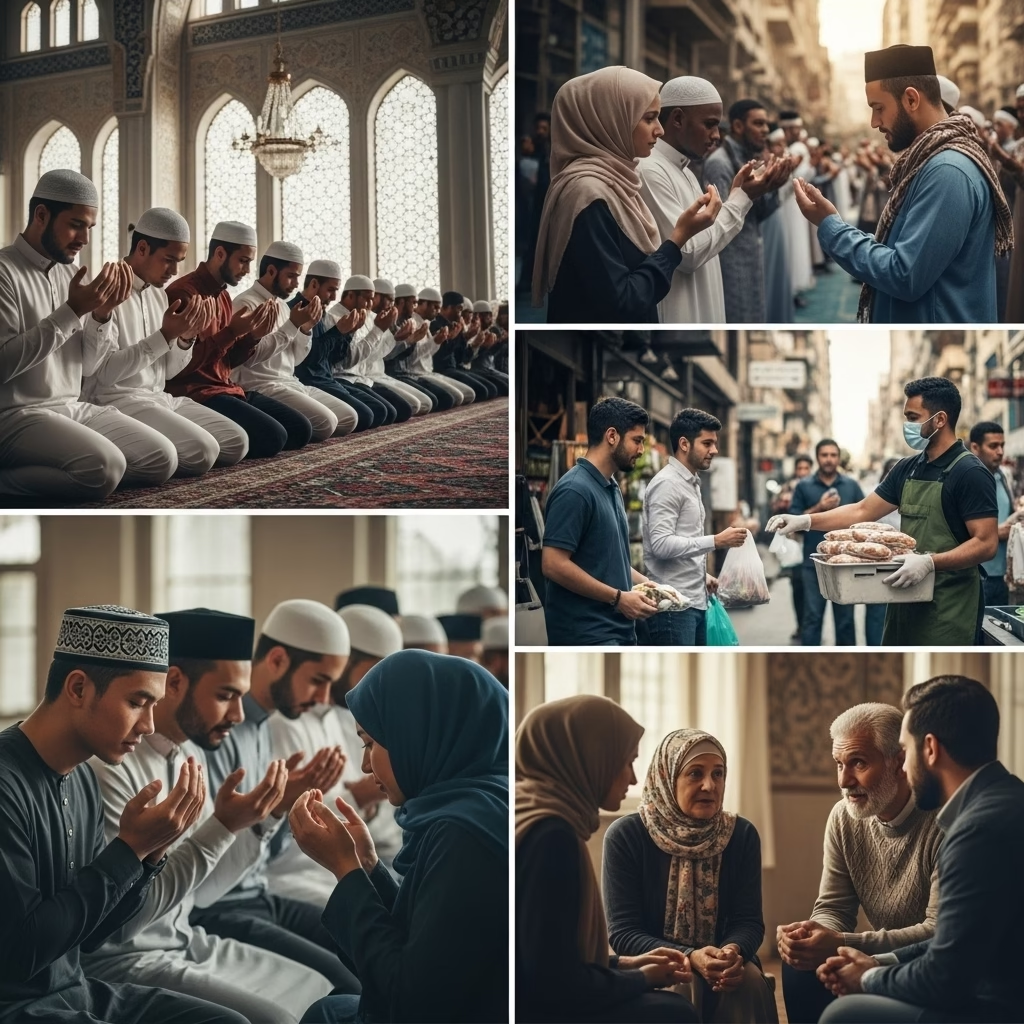
Frequently Asked Questions (FAQs)
Eid is a time of widespread celebration. Orphans and vulnerable children are at high risk of feeling excluded due to a lack of family or financial means. Gifts help ensure they feel included, remembered, and experience the joy of the occasion.
Gifts often include new clothes (significant for Eid), age-appropriate toys, school supplies, sweets, or sometimes ‘Eidi’ (money or equivalent).
While general orphan sponsorship provides ongoing support, specific Eid gift programs (like those run by Children of Adam) ensure children receive something special specifically for the Eid celebration.
While the gift itself goes to the child, the reward for this act of Sadaqah can certainly be intended for a loved one, living or deceased. The intention is key.
They work through vetted local partners and field teams who identify beneficiaries based on established criteria of need and vulnerability, ensuring donations reach those who truly require assistance.
Share Your Eid Blessings Today
This Eid al-Fitr, let’s embody the true spirit of Islam by extending our joy and blessings to include the most vulnerable members of our Ummah. By giving an Eid gift to an orphan or a child in need, you fulfil a profound Islamic duty, bring immeasurable happiness, and earn immense rewards from Allah (SWT).
Make Eid special for every child. Donate an Eid gift through Children of Adam and share the blessings of this joyous occasion with those who need it most.
